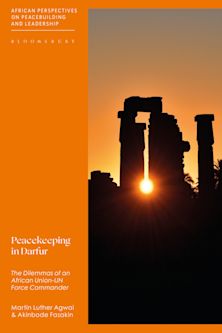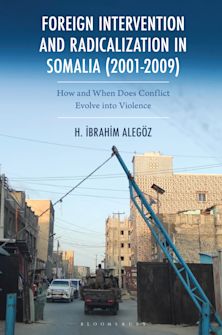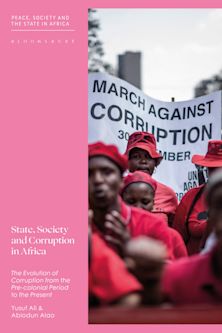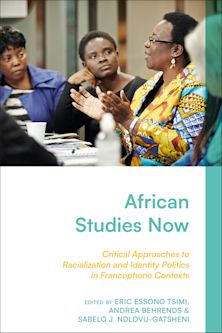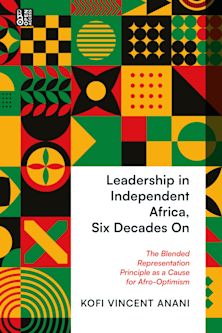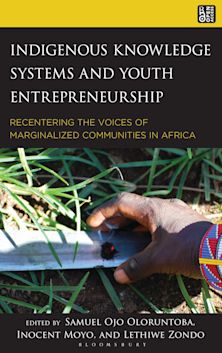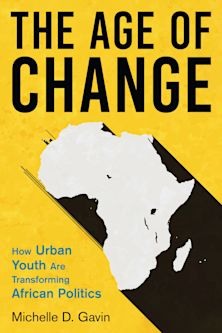Achieving Education for All
Dilemmas in System-Wide Reforms and Learning Outcomes in Africa
Achieving Education for All
Dilemmas in System-Wide Reforms and Learning Outcomes in Africa
This product is usually dispatched within 1 week
- Delivery and returns info
-
Free CA delivery on orders $40 or over
Description
Using the Education for All (EFA) global movement as the setting, this book surveys the complex labyrinths of international education policy making, the design and implementation of system-wide educational reform, and the assessment of learning outcomes in the African context. It addresses the following questions: what does it mean for African states to reform their educational systems to meet the global agenda of Education for All and the Millennium Development Goals? Under what structural conditions have African governments implemented universal primary education programs, and with what outcomes? What are the lessons learned and how do these inform the post-2015 agenda for universal primary education in Africa and other developing countries? This book provides answers to these questions and opens the possibilities for new approaches to Education for All in the context of constrained resources, unstable political climates, and the agency of local communities.
It is undeniable that African governments responded to the educational goals espoused in EFA and MDG paradigms through their own “education for all” plans and expended vast resources to realize these objectives. However, there remains a serious gap in knowledge about the design of these plans, the influence of local and international forces in their development, the challenges inherent in executing comprehensive and multifaceted reforms to achieve these goals, and the success of the reform measures as evident in student learning outcomes.
This book addresses this knowledge gap in three ways. First, it utilizes empirical data collected over a five-year period from six African countries—Kenya, Mali, Senegal, Nigeria, Tanzania, and Uganda—to illuminate how the global agenda on education has been debated, designed, and implemented across the continent, and with what outcomes. Second, it frames the six nation case studies within the wider logic of international educational policy agenda and the continent-wide search for education quality. Finally, the analysis of universal primary education strategies is undertaken from an interdisciplinary perspective thereby allowing a more comprehensive view of the educational reform.
Table of Contents
Chapter 1: Introduction: Universal Primary Education in Africa—The Dilemmas of Access, Equality and Quality, Ishmael I. Munene
Chapter 2: Universal Primary Education and the Challenge of Quality in Sub-Saharan Africa, Daniel N. Sifuna
Chapter 3: Measuring Learning Outcomes: Lessons from the Uwezo Experience, Sam Jones
Chapter 4: The Challenge of Access, Quality and Equity: Education: Education in Kenya, 1963–2015, John Kabutha Mugo, Peter Moyi, and Onesmus Kiminza
Chapter 5: Schooling and Learning in Tanzania: Trends and Issues in Basic Education, Kitila Mkumbo, Zaida Mgalla, Richard Shukia, and Blackson Kanukisya.
Chapter 6: Tracing Universal Primary in Uganda since Independence, 1962–2014, Mary Goretti Nakabugo and Christopher B. Mugimu
Chapter 7: Dilemmas of Education for All in the Entire System in Mali: An Evaluation of Learning Outcomes, Massaman Sinaba and Moussa Tankari
Chapter 8: The Long Way of the Senegalese School from Elitism to Massification: What Place for Quality Learning?, Rokhaya Cissé and Abdou Salam Fall
Chapter 9: Conclusion: Questioning Paradigm, Reframing Strategy in UPE, Ishmael I. Munene
Product details
| Published | Jun 16 2016 |
|---|---|
| Format | Hardback |
| Edition | 1st |
| Extent | 264 |
| ISBN | 9781498515245 |
| Imprint | Lexington Books |
| Illustrations | 7 BW Illustrations, 13 Tables |
| Dimensions | 234 x 162 mm |
| Publisher | Bloomsbury Publishing |












